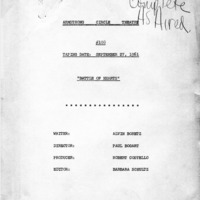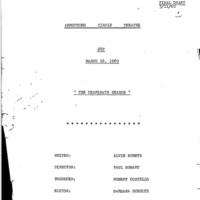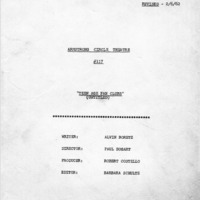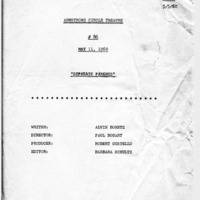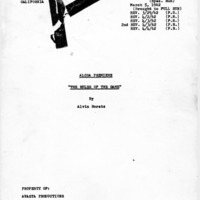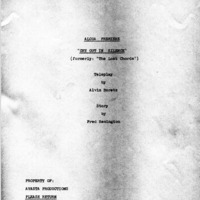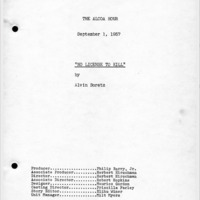Anthology Series
During the late 1950s until the mid-1960s, television anthology series were hour-long episodes that were popular across the networks. The Armstrong Circle Theater, the Alcoa Hour, and Playhouse 90, were some of the more prominent series on the air and Boretz wrote for all three at various times in his career. As the longest-running series, Boretz predominately wrote for The Armstrong Circle Theater which ran as an anthology series from 1950-1957 on NBC and then from 1957-1963 on CBS. He began writing for the show in 1956 and continued until its end. With the series' desire to air stories that leaned towards drama, Boretz's scripts for Armstrong Circle Theater were not fancifully melodramatic but instead grounded in reality.
Stories about challenging topics like medical malpractice and deception, divorce, criminal activities, psychological wards, the newest generation, suicide, and depression were the basis for Boretz's scripts. His stories for Armstrong include the award-winning episodes "The Hidden World" and "Battle of Hearts," as well as the critically lauded episodes "The Desperate Season," to which Lenny Bruce wrote a response to Boretz via telegram detailing his appreciation for a story about depression, and "The Third Ear," lauded for its detailed research on illegal wiretapping. While these are only a few of the episodes Boretz wrote for this series, his work for the Armstrong Circle Theater allowed him to delve further into the themes that he could explore with a sensitive yet forthright handle on the subject and its complexities.
Similarly, Boretz's work with The Alcoa Hour and Playhouse 90 produced popular episodes such as critically praised No License to Kill (The Alcoa Hour), which handles a story of vehicular manslaughter and uses narrative devices to count the audience down to the time of the accident, and The Blue Men (Playhouse 90), a story that explores modern police work and eventually was adapted into a television series. Ultimately, the scripts for these anthologies series allowed Boretz the space to research his topic and craft poignant stories that broadcast to his largest audiences yet.


